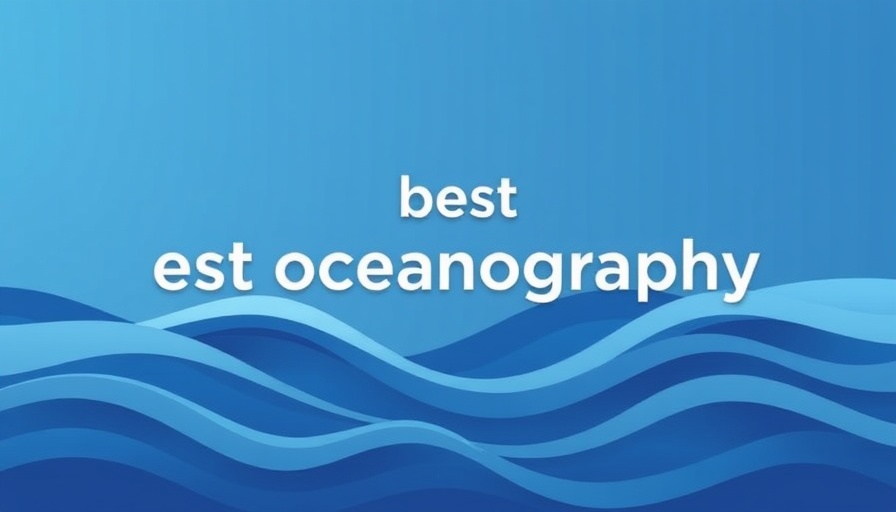
Why Oceanography Matters in 2025
As we venture further into 2025, the significance of oceanography in our lives has never been more pronounced. With approximately 38% of the world’s population living near coastal zones, understanding our oceans is crucial. The United Nations has designated this decade (2021-2030) as the Decade of Ocean Science, aimed at rehabilitating ocean health amid challenges like overfishing and climate change. Thus, diving into the world of oceanography equips individuals with the knowledge to contribute to sustainable management and advocacy for our oceans.
Top Oceanography Courses to Explore
If you’re eager to embark on a journey through ocean science in 2025, there are several valuable courses available. Here are some highlights:
- Best Course on Sustainable Use of the Oceans: Offered by the SDG Academy, this course takes 24-36 hours and delves into strategies for sustainable ocean resources.
- Sustainable Ocean Management Course: **National Oceanography Centre** offers this course, focusing on key management techniques in a concise 12-hour format.
- General Oceanography Course: **The Great Courses Plus** offers a comprehensive 19-hour course ideal for those seeking a broader understanding of ocean science.
- Short General Oceanography Course: If you’re pressed for time, consider the 9-hour program from **Study.com**.
- Best Free Certificate Course: The **Open University** presents a 15-hour course that provides certification without cost.
Engaging with Ocean Health
Learning about oceanography goes beyond gaining knowledge; it fosters a sense of connection to our planet's health. As we face the realities of climate change, this education empowers us to take action. Individuals can become advocates for sustainable practices, whether in their local communities or on larger platforms. Knowledge can inspire the next generation of marine scientists and environmental activists.
Diverse Perspectives in Oceanography
While the technological advancements made in ocean exploration are promising, they raise questions about accessibility and equity in education. With tools like ChatGPT enhancing AI in learning, more students can access resources. This democratization of knowledge is crucial, as understanding our oceans should not be restricted to a privileged few but shared across diverse communities.
Practical Insights for Aspiring Oceanographers
For those considering exploring oceanography, a few practical tips can enhance your education. First, engage with local marine life—volunteering at aquariums or participating in beach clean-ups can provide hands-on experiences. Second, leverage technology—AI tools can assist in research and study, supporting learning for business and personal projects alike. Lastly, stay curious—subscribe to oceanography-related podcasts or join online forums to connect with monitoring trends and discussions in the field.
In wrapping up, elevating our ocean knowledge holds the potential to shift our collective approach to planetary health. By embracing educational opportunities and using the tools of our time, we can forge a functional understanding of the vast blue that surrounds us.
 Add Row
Add Row  Add
Add 





 Add Row
Add Row  Add
Add 


Write A Comment